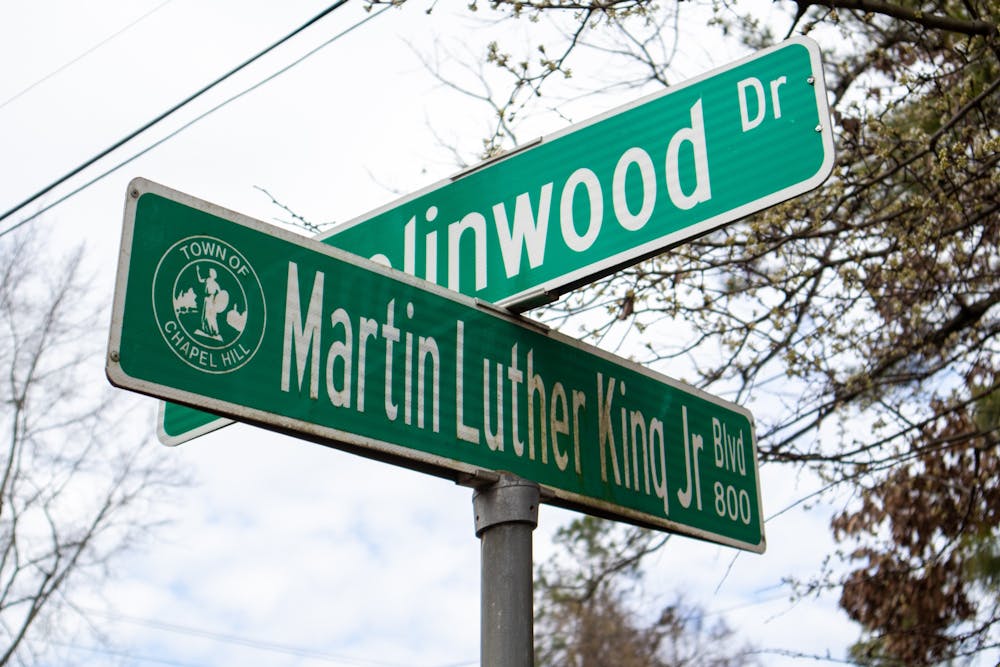Martin Luther King Jr. Boulevard was renamed from Airport Road nearly 18 years ago, a decision by the Chapel Hill Town Council that community members still appreciate to this day.
A committee on renaming the road was formed following a January 2004 petition by then-Mayor Pro Tem Edith Wiggins to change the road name to honor the civil rights legend. The renaming, which was supported by the local NAACP, was approved in December 2004 by the Chapel Hill Town Council, and dedicated in May 2005.
More than 900 streets across the country are named after King. According to research from geographer Derek Alderman, census tracts that include streets named after King are home to significantly more Black residents than other areas of cities. The per capita income is also lower on average in those areas.
Yah-I Ausar, owner and chef of Vegan Flava Cafe, said he hopes the renaming still helps people in the community act both consciously and subconsciously with King's work in mind.
“It's a constant reminder of what he stood for and what folks who carry on his work stand for, so it's very important to have that street name visible and viable,” Ausar said.
Though the renaming recognized a civil rights figure and activist, Michael Newell, the operator of Dame's Chicken & Waffles, said marginalized groups and communities continue to struggle with the lack of representation in Chapel Hill.
Newell said there are not many spaces that are owned by people who belong to marginalized groups on Franklin Street or in the rest of Chapel Hill, but there are moments when people are able to come together to create safe spaces. Newell's business recently held an “impromptu jazz party” that many individuals from different marginalized communities attended, he said.
Newell also said he was a student at UNC when he first saw the changed street sign and instantly felt more comfortable. About 40 percent of UNC’s student population identifies as non-white.
"When I see Martin Luther King being recognized, there is always a part of me that hopes that that is an injury to people learning more about other aspects of the Civil Rights Movement and African American culture and not just stopping at that one individual," Nowell said.




